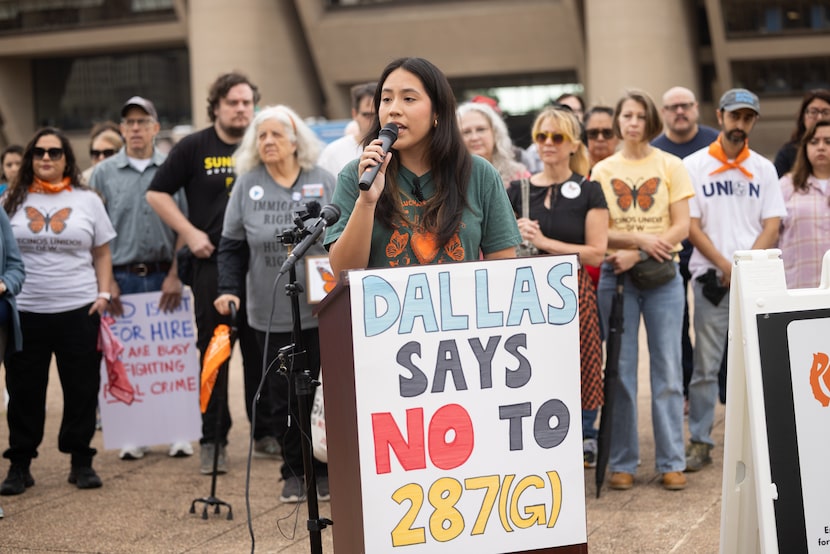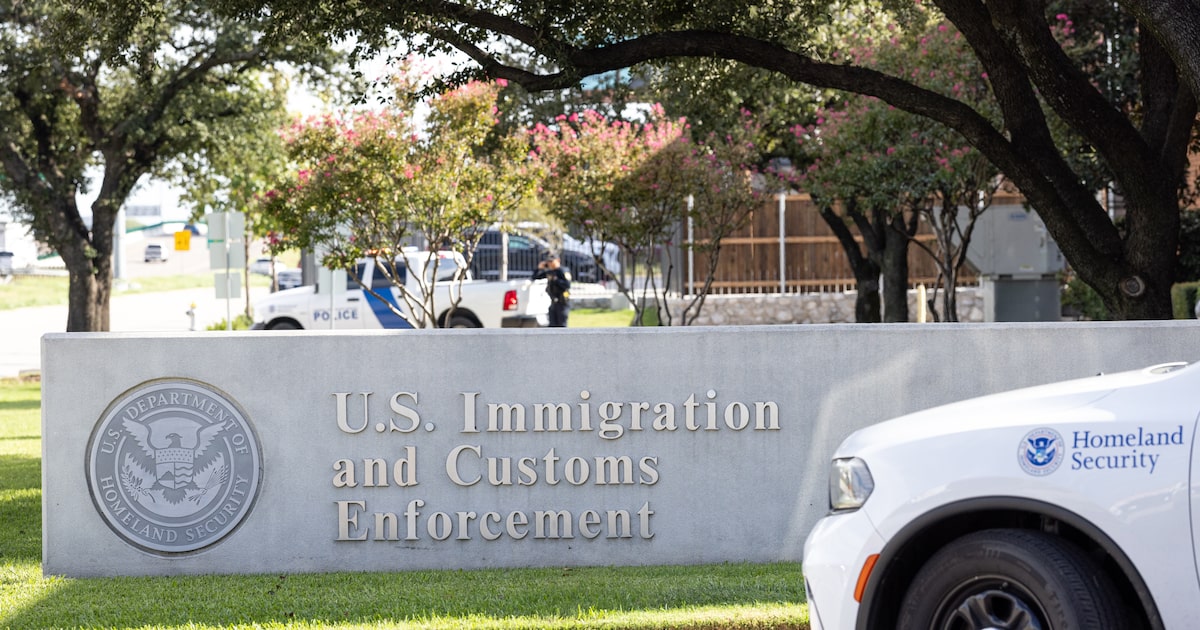Two Dallas City Council committees are meeting Thursday morning to weigh a $25 million proposal that would authorize city police officers to help enforce federal immigration laws.
The proposal — which Police Chief Daniel Comeaux revealed last month he had initially rejected — was later floated by Mayor Eric Johnson as a potential boost to city finances and a “force multiplier” for the department.
The 287(g) program, named after its statutory citation in Section 287(g) of the Immigration and Nationality Act, would authorize officers with duties typically reserved for federal immigration authorities.
The mayor’s suggestion ignited public debate, drew statements of opposition from 10 City Council members and prompted outcry from immigrant advocacy groups. Critics say such an arrangement would undermine the public trust in police, expose the city to liability and divert the department from its core mission.
Breaking News
The city’s public safety and government efficiency committees are scheduled to meet at 9 a.m. in the council chambers at City Hall at Johnson’s request. It will be open to the public and streamed live on the city’s website.
In an interview with KTVT-TV (Channel 11) aired Wednesday, Johnson cast the joint committee meeting as a fact-finding one.
He noted media reports and the chief’s remarks describing the proposal as a $25 million offer, but said he had received no confirmation of that amount and had not been provided with the proposal’s specifics.
“All I know is what has been reported,” Johnson said in the interview, “so what I asked for was to have a discussion in public because I think that is very important.”
The mayor said he respected Comeaux’s authority to turn down the proposal but added that $25 million was “nothing to sneeze at” for a department working to recruit more officers and stretch its budget.
Johnson said he was undecided on the agreement and would decide whether he supported it after Thursday’s meeting.
Groups opposing the 287(g) program are urging supporters to attend the joint meeting Thursday, including Somos Tejas, which held a rally outside City Hall last month to protest the idea.

Jennifer Sanchez, a legislative coordinator with the Texas Civil Rights Project, speaks as community group Vecinos Unidos DFW, the Dallas Hispanic Bar Association, and Somos Tejas hold a press conference calling on the city and Dallas Police to reject collaboration with ICE/DHA under the 287(g) program outside of Dallas City Hall in Dallas on Friday, Oct. 24, 2025.
Juan Figueroa / Staff Photographer
Related

The Department of Homeland Security’s website says the agency would reimburse the city for participating officers’ salaries and benefits, covering their full pay and up to 25% in additional overtime.
The 287(g) program is a piece of President Donald Trump’s mass deportation agenda he ran on. There are three models: two are based in jails, with the third being a “task force” model that would authorize local officers to perform certain immigration enforcement actions.
In a memo last month requesting the committees meet, Johnson specifically highlighted the task force model, writing that participation “could provide significant financial benefits to the city” and be used to hire additional officers with no impact on the city’s budget.
Johnson’s memo prompted 10 council members — Chad West, Jesse Moreno, Jaime Resendez, Laura Cadena, Adam Bazaldua, Lorie Blair, Paula Blackmon, Kathy Stewart, Gay Donnell Willis and Paul Ridley — to issue public statements arguing immigration enforcement should remain a federal responsibility. Some said the partnership would undermine public trust in the police department.
Some council members speaking in opposition sit on the committees that will meet Thursday. Moreno, Cadena and Stewart sit on the public safety committee. Ridley, Blackmon and Bazaldua sit on the government efficiency committee. Resendez sits on both.
In a memo sent to City Council members last week, Comeaux expanded on his decision, saying the 287(g) program would place Dallas officers under federal supervision — a move he warned could slow 911 response times and “erode the public trust our department has worked hard to build.”
Johnson said he was not sure if that was the case, so he requested the meeting scheduled for Thursday. He told KTVT-TV (Channel 11) he likely would not attend the meeting but would “definitely be paying attention to what happens.”
